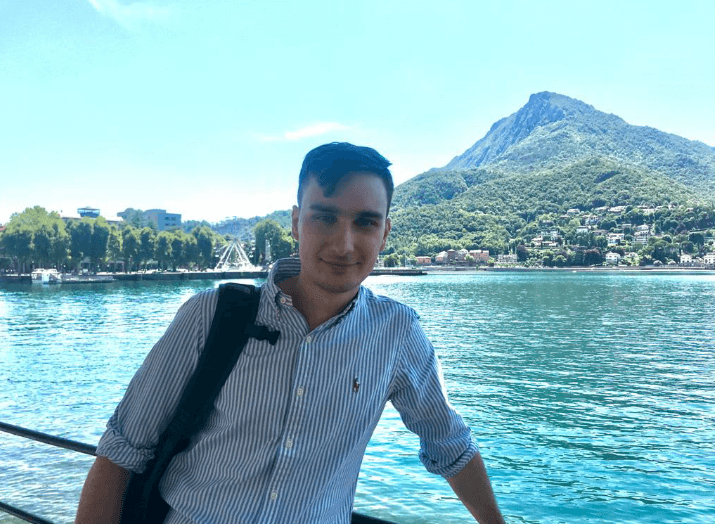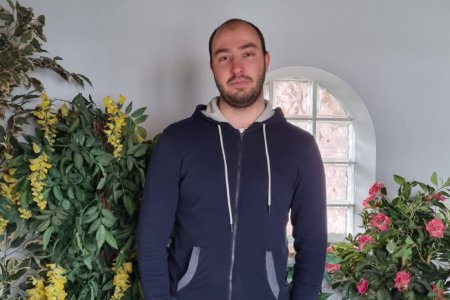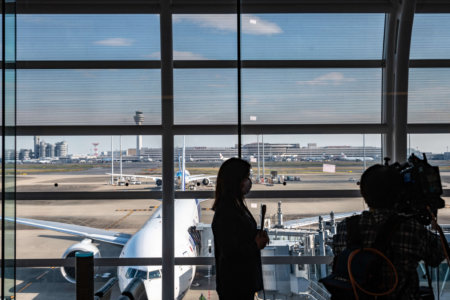
Ever since the pandemic began, stranded students have suffered from Japan’s travel restrictions. They faced challenges with communicating with their respective unis, time zone differences and remote classes.
With the new Omicron variant, it’s looking like Japan won’t reopen its borders to international students anytime soon. This is not good news for Filippo Pedretti from Italy.
He was supposed to start a joint degree programme between the University of Padua and Ca’ Foscari University of Venice, where he was selected to spend a semester at Chukyo University in Japan.
Japan’s travel restrictions, however, have cancelled an entire year of studies for Pedretti. Below, we speak to him about his situation and his advice for foreign students:
What made you choose to pursue religious studies?
I’ve always been interested in history and world cultures since I was a child. In my family house, there were always books and some of them were about Asian philosophies and religions.
During my late teens, my interest in religious studies grew after writing a small dissertation about it for my high school finals. I then pursued a bachelor’s in anthropology, religions and oriental civilisations in Bologna.

“During my undergraduate studies, I focused my research on Japanese Rinzai Zen Buddhism. I got the chance to take exams in basic Japanese, and Asian philosophies and religions,” he says. Source: Filippo Pedretti
What made you choose to study abroad in Japan?
During my undergraduate studies, I focused my research on Japanese Rinzai Zen Buddhism. I got the chance to take exams in basic Japanese, and Asian philosophies and religions.
I wanted to deepen my knowledge in these topics in my postgraduate degree so I chose a joint degree programme that offered courses and the possibility of studying in Japan. I was selected for a semester abroad at Chukyo University which was scheduled for spring 2021.
It was then postponed to fall and subsequently moved to spring next year. In the meantime, I won a scholarship at the University of Padua to study at Waseda University in Japan so I dropped the first semester abroad programme.
What are some of the biggest obstacles you face with Japan’s travel restrictions as a student?
In my case, it was that Chukyo University simply cancelled the semester abroad programme and move it to the next term. I had already finished my postgraduate exams except for the one I was supposed to take as an exchange student.
So, along with a whole year of study cancelled, I was also forced to delay my graduation. I spent most of this year finding other things to do.
I decided to take online classes in Japanese with a language school and paid for myself. When it comes to the future, I still live in uncertainty — I have no hope left for my Waseda University exchange next April.
I will have to study six days a week during the night, online because of the time difference.
What do you think should be done to further help stranded students? What are your thoughts on Japan’s travel restrictions following the Omicron variant?
I’ve been actively supporting stranded international students outside Japan from the beginning of this year. I spoke with journalists and I’m ad admin of a Twitter page regarding this issue.
I also try to reach out to institutions as much as I can and I think that the most important thing to do right now is to keep pressuring Japan’s government by raising our voices. It’s also important to get our points across to our embassies who have remained silent even though this situation has been ongoing for the past two years.
Of course, it’s the government who ultimately decides on Japan’s travel restrictions but embassies have a duty to use their institutional role to support us. Regarding the current travel ban, it seems to me like an excuse to ban foreigners once again.
Many have questioned the seriousness of Japan’s travel restrictions along with anti-COVID-19 measures since it seems to be political. The ban never prevented Japanese citizens to leave the country.
Japan’s travel restrictions don’t exist for people in the Olympics, international artists and Japanese nationals.

“So, along with a whole year of study cancelled, I was also forced to delay my graduation. I spent most of this year finding other things to do,” he says. Source: Filippo Pedretti
Have your unis there given you enough support?
Both my unis and Japanese ones don’t have a lot of choice in the matter. Chukyo University was simply forced to continuously move its exchange programmes every semester and Waseda University only provided night-time online classes.
As far as my home unis are concerned, the big problem stands to be losing scholarship money if I don’t go to Japan. Since then, I was forced to move my graduation date to the next year and pay extra fees.
These extra financial losses, in addition to psychological and educational issues, were exhausting to deal with.
What backup plan do you have?
I’m still hoping to build my future research career in Japan since I’ve invested a lot with my Japanese studies and research project. Since I had the chance to write for Canadian academic journals, I was also selected for an intensive programme by Canadian associations and Princeton University back in 2020.
I could possibly consider shifting my focus there for my future studies. I hope I won’t have to do so though because that would mean building up a different research project and admitting that I wasted time waiting for Japan’s travel restrictions to lift.
What would your advice be for international students who want to study in Japan?
For now, focus on something else. Japan’s travel restrictions have ruined a whole lot of peoples’ professional and educational lives. It’s caused severe psychological and economic issues as well.
While our institutions still promote Japan as a welcoming country to fulfil one’s dreams, it should be stated clearly that it is one of the most unfriendly countries for foreigners right now.
As a love of Japanese culture, I really hope this situation will improve as quickly as possible. However, for the time being, it breaks my heart to admit that I would advise you not to study there.










